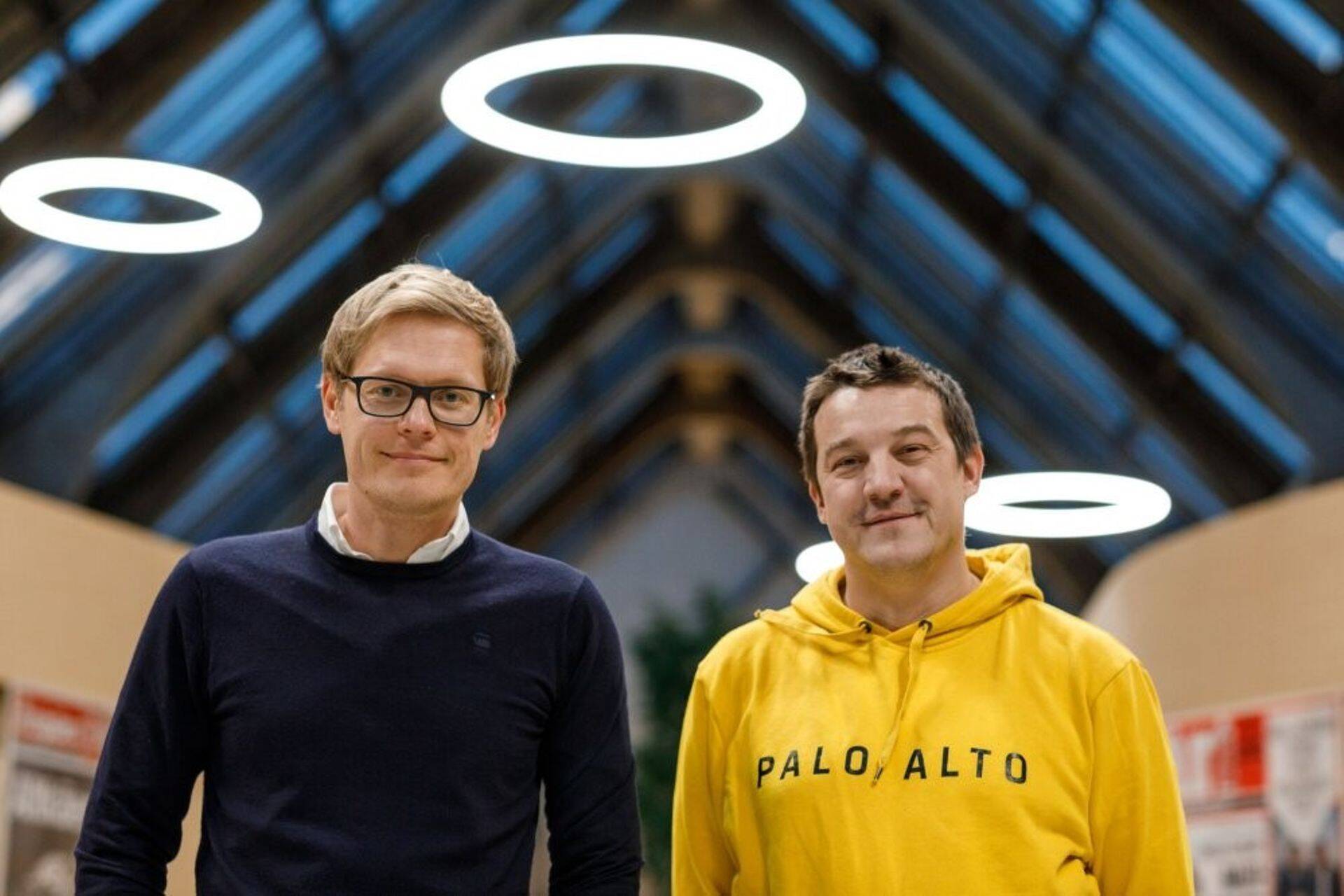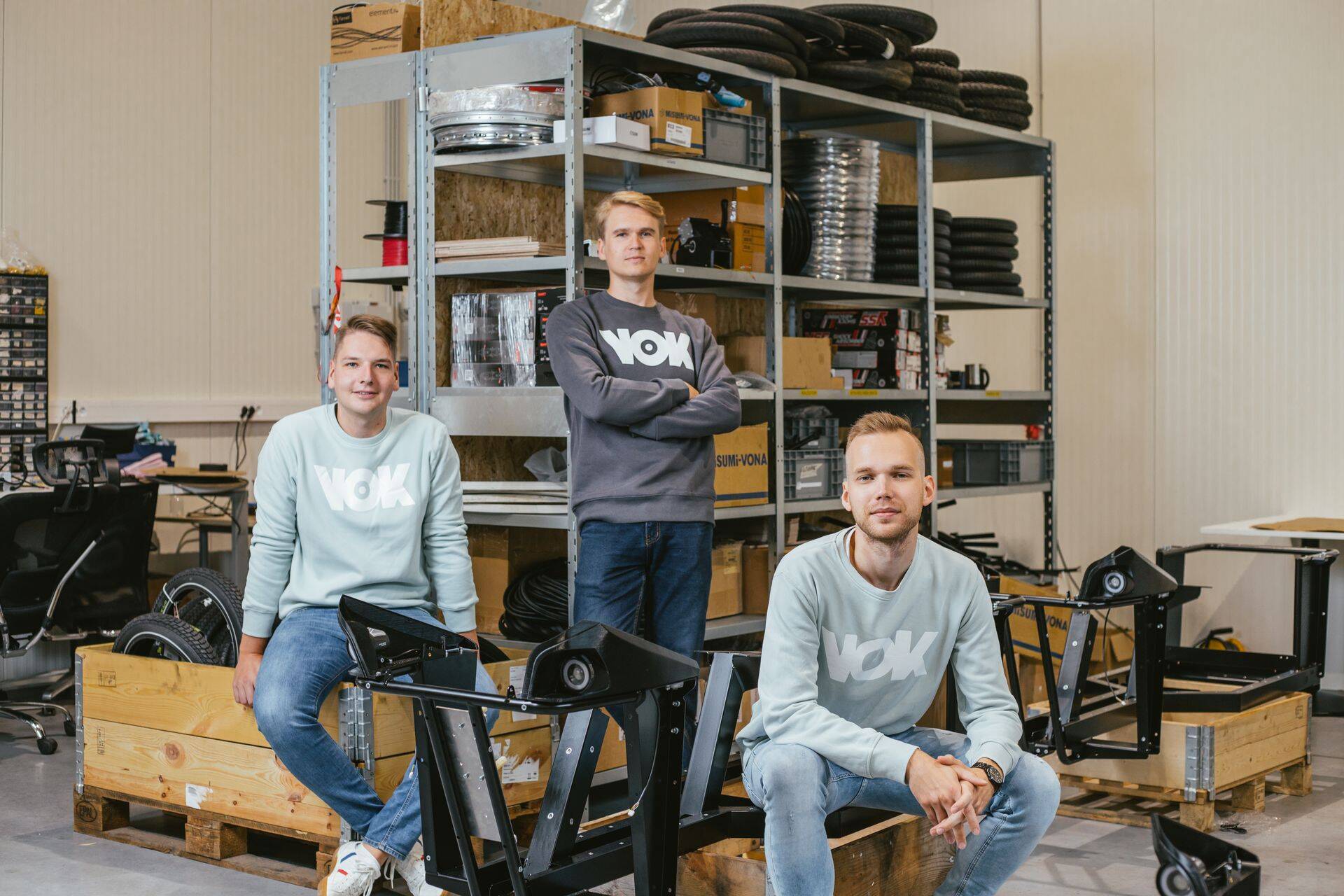- aripaev.ee
- ituudised.ee
- bestmarketing.ee
- kestlikkusuudised.ee
- kaubandus.ee
- finantsuudised.ee
- palgauudised.ee
- personaliuudised.ee
- raamatupidaja.ee
- toostusuudised.ee
- logistikauudised.ee
- ehitusuudised.ee
- kinnisvarauudised.ee
- pollumajandus.ee
- mu.ee
- imelineteadus.ee
- imelineajalugu.ee
- laanevirumaauudised.ee
- kalastaja.ee
- dv.ee
Tähelepanu! Artikkel on enam kui 5 aastat vana ning kuulub väljaande digitaalsesse arhiivi. Väljaanne ei uuenda ega kaasajasta arhiveeritud sisu, mistõttu võib olla vajalik kaasaegsete allikatega tutvumine
Estonians raised 10 million to disrupt the aviation world
SkySelect received $10 million from investors to solve the problem in sourcing spare parts at the huge aviation market.
For example, if something happens with the aircraft en route from Tallinn to Paris, but the spare parts are in Tallinn, the airline will be in trouble. An aircraft that has to unexpectedly remain on the ground could cost the airline up to $100,000 per hour. This is where the Estonian startup steps in.
At the end of 2017, Erkki Brakmann, co-founder and CEO of SkySelect, created a platform to help airlines and aircraft maintenance professionals to quickly find and buy spare parts for aircraft.
Aircraft spare parts are not commodities you can find on Amazon, searching through the offers and prices. Everything is based on real-time demand: specific offers are made for the desired part and the buyer can choose where and from whom to buy it, Brakmann said.
It all started with one customer
For instance, one of the airlines that is now the company’s customer is Latam Airlines, the largest airline in South America that has over 300 aircraft in its fleet. "That's where the whole thing started. Together with them, we built the first platform and as a result, we now have about 12 customers worldwide," said Brakmann.
He says that their clients are all major airlines or MROs, i.e. aircraft maintenance companies such as Magnetic MRO in Estonia. On the other hand, there are around 1,500 suppliers in their network that ship these spare parts worldwide.
Kaarle Karp, Logistics Manager at Magnetic MRO and one of SkySelect's customers, says that their customers' aircrafts are in service for 2-3 weeks, during which time all spare parts must be delivered. Karp adds that 99% of orders are supplied from outside Estonia. Moreover, inventory planning for companies such as Magnetic MRO is very difficult since one aircraft may have hundreds of thousands of parts that may or may not be needed during maintenance.
A good platform helps to stay competitive
"When it comes to ordering 3,000 to 5,000 spare parts, time becomes a key factor: where to order, how much to order and at what price, and how to track shipments to ensure they are delivered on time," Karp said. He noted that for a single aircraft in maintenance, about 8 to 12 percent of all materials can be ordered before maintenance begins, but the rest remains a surprise and can only be ordered once the aircraft is being disassembled and defects are being searched.
Brakmann pointed out that, for example, one Boeing 737 aircraft alone has 600,000 parts and no-one can tell in advance which ones must be replaced. "Airplanes are like cars that break down and need spare parts. The only difference is that there are far more parts in the plane that can break down.”
Karp notes that companies that spend too much time and money on purchasing, transporting and tracking spare parts cannot be strong on a global scale and compete with other similar companies. "It's an international business, and being geographically peripheral doesn't make it any easier," Karp said. "MROs that have big gaps in their supply chain may disappear or lose market position fairly quickly."
Investors entrusted millions to the company
Karp says he is confident that SkySelect is already one step ahead of what has been offered on the market for 20 years. Perhaps that is also why the company managed to raise $10 million in spite of being a fairly new player.
Investors see clear potential in the venture, according to Brakmann. "The investment will give us 18 to 24 months to take our product and business model to the next level. Once that goal is met, it becomes clear how much money we need to raise in the next round,” he explained.
Brakmann admitted that the company is not yet making serious money, but added that there are already paying customers.
The goal is to automate the suppliers' sales process and create added value, since it generates good money for them. It means that sales people no longer have to e-mail offers to price enquiries, and the buyer is automatically matched with a suitable product. As for airlines and MROs, SkySelect plans to sell its software as a service for an annual license fee. "On the supplier side, we will develop our sales model in the next year," he said.
Magnetic MRO is currently using the SkySelect service to get information. Karp explained that through the platform, they now have faster access to suppliers' inventory and stock prices, and it is easier for them to compare prices and to connect with new suppliers.
A good source of information
According to Karp, one of the weakest points in global inventory planning in aviation is that suppliers may claim on their website that they have goods in stock, but this information may be incorrect as inventory status may change in seconds. He adds that SkySelect interfaces enable them to see real-time inventory and this gives them a time advantage. "If Magnetic itself wanted to set up hundreds of interfaces with its suppliers, we would need a separate department to manage it."
Karp said they are not yet using SkySelect as a purchasing platform, but hope to do it by the end of this year.
Airlines value savings highly
Brakmann says that large manufacturers such as Boeing and Airbus also supply spare parts directly, but as with the automotive industry, spare parts for aircraft can also be found on the aftermarket at cheaper prices.
There is also a large amount of aircraft spare parts in circulation which have been left unused by another airline. "Another airline has bought it and it has been sitting on the shelf. For example, if the company has replaced the aircraft model and no longer needs this spare part, it could be resold on the market. Such spare parts are much cheaper, but the quality is the same."
Brakmann noted that airlines have very low profit margins and competition between airlines in Europe and Asia is particularly tough. Therefore, every cent counts and cost savings are important.
Not afraid of competitors
Brakmann says that SkySelect's competitors developed their solutions 20 to 30 years ago, meaning they are obsolete and do not completely solve the problem. "There is a great deal of inefficiency. That’s why we decided to make a better product. There are competitors on the market and they are really experienced and well-known players, but at the same time they have created a lot of bad blood,” said Brakmann.
According to him, one of the company’s biggest competitors today is Aeroexchange, founded by 13 major airlines. "As airlines are also big competitors, it’s not an easy company to manage. We have no interest in or investors among airlines or major suppliers. It means that we can be more objective and flexible than our competitors.”
Brakmann adds that the company is keen to make sure that SkySelect’s investors are not directly involved in airlines or spare parts suppliers. At the same time these investors are usually backed by Silicon Valley venture capitalists who, in one way or another, have an interest in or knowledge of aviation and platforms or can help the company with their contacts or network.
The current fundraising round was led by investment fund Lux Capital, a well-known player in Silicon Valley that specialises on high technology. "They liked what we were doing, because it's not the kind of application for the ordinary user, but something that solves a complex problem. If you can solve it, it will have a huge selling and scaling potential. ”
From earlier times, SkySelect investors also include Bain Capital Ventures that focuses, among others, on the supply chain.
The Silicon Valley experience came in handy
Brakmann established contacts with the investors from Silicon Valley thanks to having lived and worked there for almost 3.5 years. He came to Silicon Valley with his previous startup DeltaBid. "We learned how the software world works, how a business is developed and how the investment network works."
They are now solving costly aviation problems from Tallinn and Silicon Valley. The headquarters are in the US and developers are in Tallinn. "The US team covers both North and South America. The European team covers Europe, Africa and the Middle East. The only region where we do not yet have operations is Asia, but we are already looking towards it.”
According to Brakmann, at the moment SkySelect is working closely with selected airlines and wants to add another 3-5 reputable airlines to the platform this year. "These 3-5 new customers would include some major airlines from the US, and a few big players from Europe and Asia. Ideally, we want to include prominent companies from every region with whom further develop our business.”
The first idea didn't take off
"We arrived here after having made a full circle," says SkySelect’s co-founder and CEO Erkki Brakmann whose background is actually in supply chain and not in aviation.
Their previous venture, DeltaBid, developed a horizontal platform that has the same goal: to help find suppliers globally regardless of the sector. They had customers from different sectors around the world, including Eesti Gaas, ABB and Tele2 in Estonia. The customer list included some companies in the field of aviation.
"We had customers around the world, money was pouring in and it could have been a very profitable venture, but we were simply not happy with the speed of its growth," Brakmann said.
They saw that airlines make a lot of purchases and very often. "We realized they were buying spare parts. We started going to conferences, communicating with airlines and suppliers to understand the market and its problems. We understood that it was a very big problem on a very big market, and decided to focus on just one area," he described.
At the end of 2017, they created a platform to help airlines and aircraft maintenance professionals to source and buy spare parts.
SkySelect was founded by Erkki Brakmann, Rain Öpik, Tulika Dayal and Soufiane Houri. Houri is former VP of Product at HackerOne, Atlassian, Cisco and other Silicon Valley companies.
foundME is inviting you on board of a weekly newsletter that will bring you the news and opinion stories from the Estonian startup scene. - Subscribe to foundME newsletter HERE!
Seotud lood
Tänapäeval ei piisa pelgalt ilusast välimusest – tõeliselt edukad digilahendused peavad olema samas ka kasutajasõbralikud, toimivad ja esteetilised.
Enimloetud
Viimased uudised
Hetkel kuum
Liitu uudiskirjaga
Telli uudiskiri ning saad oma postkasti päeva olulisemad uudised.
Tagasi FoundMe esilehele











